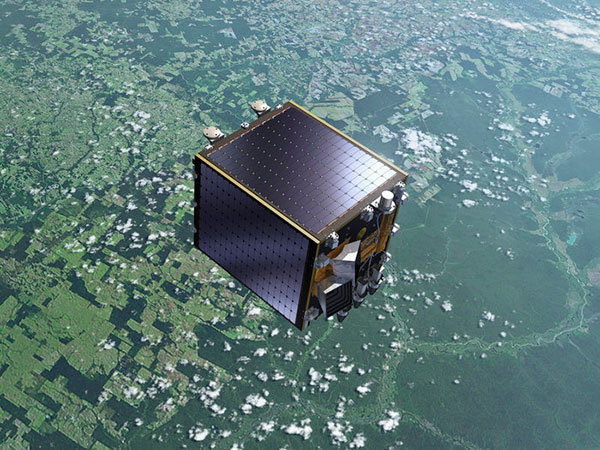
Velcro and pressurized pens are a repeated lore of the technologies that have come out of space programs, but many devices originally developed to orbit around Earth have made even more impact on the people below than Velcro. Now a new example of such translational research has led to a sensor created for the European Space Agency’s Proba-V satellite being tested for use in detecting skin cancers.
The camera aboard the Proba-V scans vegetation, detecting subtle variations in the health of the plants using both visual and near-infrared detectors. Because the satellite was designed to scan the entire Earth every couple of days, the resolution and sensitivity of the sensors is quite incredible. Near-infrared has been used for a number of years already in helping to find and assess skin lesions, but the sensor within the Proba-V satellite is substantially more capable than any similar device previously developed. Xenics, the Belgian company that developed the sensor, is now testing the device for clinical applications, hopefully leading to the fact that a vegetation satellite will have led to the early detection of thousands of cancer cases.
More from the European Space Agency:
The Proba-V camera captures a 2250 km-wide picture of the land below on every sweep, made possible by Xenics’ 3072-pixel line sensor. Unlike conventional rectangular detectors, like those used in consumer digital cameras, this sensor captures information one line at a time, which it can do very rapidly. It builds up a complete imageas the target moves past– more efficient for imaging rapid objects on production lines.
In the medical sector, Xenics are now adapting their technology to improve a doctor’s ability to diagnose skin diseases. Scanners have been giving detail-rich cross-section images of living tissue for some 20 years, but the space camera’s sensitivity at certain wavelengths means it can see deeper to help diagnose skin diseases such as cancer.
The game-changers here are the significantly higher sensitivity achieved by the sensor and the speed, making it possible to complete the scan in a reasonable time.
Source: European Space Agency…
(hat tip: Gizmodo)
The post Sensor Aboard Proba-V Satellite to Help Detect Skin Cancers appeared first on Medgadget.
